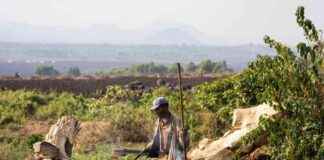An Avian Crisis: The Threat of Bird Flu and the Trump Administration’s CDC Data Sharing Policy
An epidemic is sweeping through the avian world, leaving devastation in its wake. The highly pathogenic H5N1 avian influenza has been wreaking havoc on global bird populations for years, with over 136 million birds affected in the United States alone since January 2022. But the impact doesn’t stop there—the virus has made the leap to other species, infecting elephant seals and cats.
The concerning trend continues as the virus has now crossed over to humans, with dozens of cases reported in the U.S. and tragically, one death. While the risk remains low, recent developments in the bird flu outbreak have raised alarm among infectious disease experts.
Bird Flu Updates: As the situation unfolds, it’s crucial to stay informed about the latest developments. More than 60 individuals in the United States have tested positive for bird flu during the current outbreak, with the first reported death in January in Louisiana. Many of those infected worked on dairy or poultry farms, where millions of birds have been culled to prevent further spread.
In a surprising twist, the virus has now been found in dairy cattle, previously not known to be susceptible to H5N1. A new strain of the bird flu virus, D1.1, has emerged, infecting cattle for the first time in Nevada. This development has infectious disease researcher John Swartzberg concerned about the virus’s adaptability and ability to infect new hosts.
Swartzberg emphasizes that while the risk of a bird flu pandemic remains low, the virus’s recent behavior is cause for caution. With H5N1 showing unprecedented adaptability and infecting new hosts, there is a lingering question about the potential for human-to-human transmission in the future.
CDC Scramble: Amid the bird flu outbreak, the Trump administration’s changes to data-sharing protocols at the Centers for Disease Control and Prevention (CDC) have created additional challenges. The administration’s decision to withhold studies on bird flu has raised concerns among experts that efforts to contain the outbreak could be disrupted.
In January, the CDC faced a pause in its scientific publications, including studies on bird flu, due to new data-sharing policies. While the report has since resumed, there have been instances of data related to bird flu being included and then removed from official publications, sparking questions about transparency and access to critical health information.
Health officials across the country have expressed apprehension over potential censorship of vital health data, highlighting the importance of reliable information in guiding public health responses. As the Biden administration works to address the bird flu outbreak, the need for accurate data and swift action remains paramount.
Expert Insights and Climate News: In a broader context, recent climate-related developments underscore the interconnected nature of environmental challenges. A government-funded National Nature Assessment, aimed at assessing the state of wildlife, water, and lands in the U.S., faced setbacks due to an executive order shutting down the report’s publication. Despite this, experts continue to work diligently to complete the analysis and share critical insights on the impact of climate change on nature.
Additionally, global climate action has faced delays as countries, including major emitters like China and India, missed deadlines to submit updated climate targets. Environmentalists have criticized the sluggish response, highlighting the urgent need for comprehensive climate plans to address the escalating climate crisis.
Amid these challenges, a recent Super Bowl commercial dedicated to climate action captured attention, emphasizing the urgent need for collective efforts to combat climate change. The ad’s poignant message resonated with viewers, raising awareness about the far-reaching impacts of climate change on future generations.
As we navigate complex environmental issues, it becomes clear that collaboration, transparency, and informed decision-making are essential to address the pressing challenges we face. By staying informed, supporting critical research, and advocating for sustainable solutions, we can work towards a healthier, more resilient future for our planet and all its inhabitants.
Donation Request: If you found this article informative and valuable, please consider supporting our work at Inside Climate News. Your tax-deductible donation helps fund our ongoing reporting on climate and environmental issues, reaching more readers and driving meaningful change. Thank you for being a part of our mission to inform, educate, and inspire action on the most pressing crisis facing our planet.














